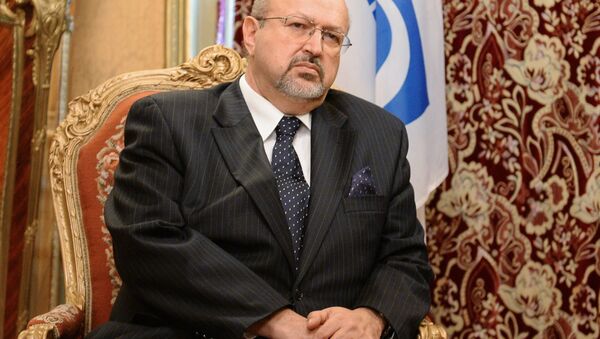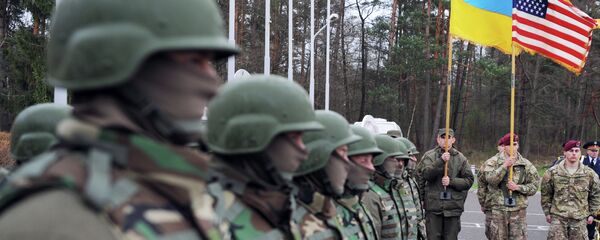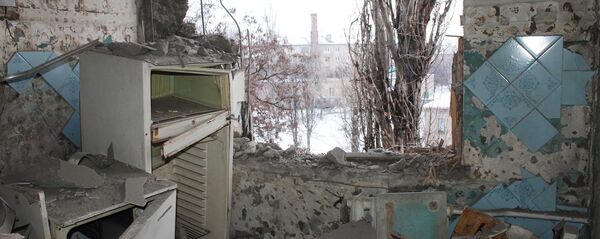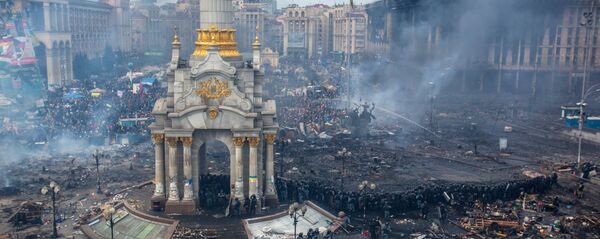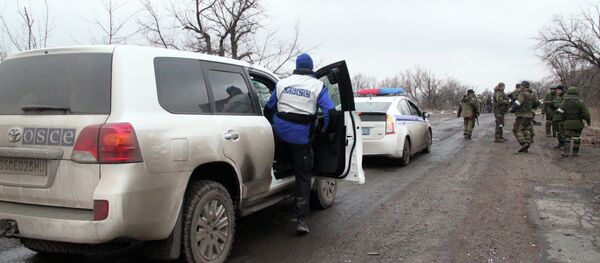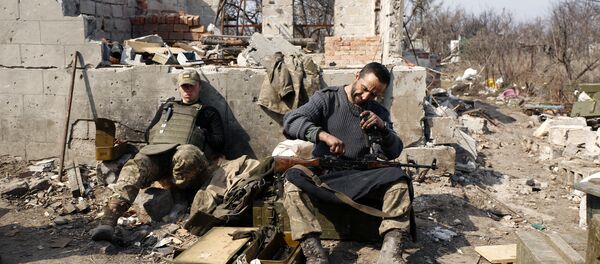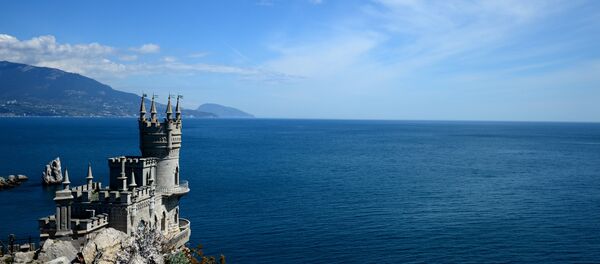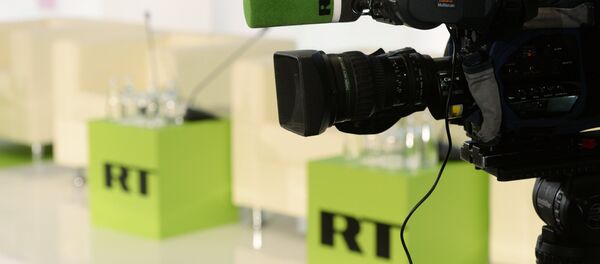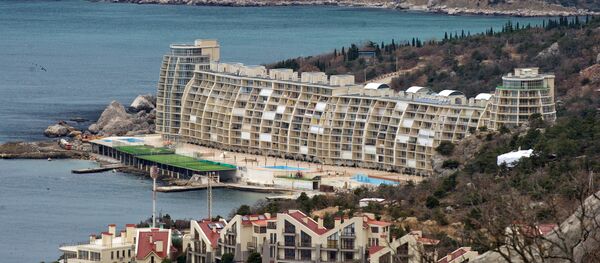How do you see the current level of the counterterrorism cooperation worldwide and within the OSCE? What role should the OSCE play in this area?
It is obvious that terrorism is a phenomenon that we are facing increasingly and we need responses. It seems that the UN is responding very well on this. I have seen that it has been very recently an appointment of an excellent Russian representative as a new counterterrorism person in the UN.
On top of that we have a number of initiatives here starting with initiatives to counter violent extremism and radicalization. We have launched a campaign, where we had millions of young people joining in, first of all, to raise the awareness. We are looking at the importance of education, for instance, as well, engaging with women and with youth on these issues.
Operationally, I just concluded a few weeks ago a memorandum of understanding with Interpol to strengthen also the security response in terms of better control and better cooperation among the participating states.
Our work on the legislation is also important and, I think, that is why we are going to continue working. We are only one member in a very broad coalition of international actors, with whom we are working very closely.
What is your assessment of the current situation in and around the Ukrainian conflict?
I am worried of what I am seeing. In general, I am worried for a number of reasons. First of all, it is the situation on the ground.
The number of civilians’ casualties also has increased dramatically, which means that some of the weapons that should have been withdrawn, in fact, have been repositioned closer to the line of contact and this combat is affecting the area and creating civilian casualties.
We also have fatality due to mines. There are still a lot of minefields around. There are commitments taken in the context of the implementation of Minsk agreement to proceed to demining of certain areas but we have no evidence of any concrete actions toward demining.
Concerning the political process, the OSCE has been supporting the trilateral contact group’s negotiations in Minsk and there too, despite the fact that we try to come up with the initiatives, we see little progress. So, there is a need to revitalize Minsk process because the risk is that the situation around this conflict in some ways is starting to resemble the so-called frozen conflicts but with the complicated factor that combats are not ending and the impact on the population is really creating a humanitarian emergency in the region.
What steps do you expect from Russia in this regard?
Russia is one of the signatories, so we expect its support. When I travel to Moscow and I speak to the Russian leadership, I always come up with a number of suggestions for engagement and to help us. One of the areas is on the ground. There is a mechanism, where Russian and Ukrainian officials intersect on the join participation-coordination center, and that mechanism overtime has become rather dysfunctional. So, we would like to have solid interlocutors on the ground that can help us engage with the sides better. Russia, of course, has also good channels to talk to the separatists. The Ukrainians obviously find obstacles, so it is easier to try to talk to the Russian side to see progress on the ground when it comes to brokering ceasefires.
For the protection of the infrastructure, we have seen damage on various occasions, first of all, to hospitals to schools but also to factories, to centers of the production of electricity. We also see the water distribution system been affected in some cases. This is where we need all external actors, who can interact with the local players, to help us achieve these goals of opening up spaces for the civilian population, who suffer.
Earlier in June, President of Ukraine Petro Poroshenko called on the OSCE head Sebastian Kurz to intensify consultations on the introduction of an OSCE police mission in the eastern Ukrainian region of Donbass. Have you completely abandoned the idea of deploying an OSCE military mission in Donbass? When will it be sent to the region?
First of all, we are open to this idea and we also have been doing internal planning on how to implement it, and we will be discussing it with the United Nations.
Secondly, for the police mission to be deployed I need an environment that allows me to deploy it, so, I need to have locally conditions that can make this deployment doable in the context, for example, some of the rebel commanders have been informing us not to send policemen to some areas, because they are not welcomed there.
Minsk again is an appropriate framework for the agreement on that. I am ready to support and to work to implement that but we need an agreement among all sides, including the ones who have control over the territory, and secondly we need a mandate, which is a consensus decision within the OSCE.
At which stage are those consultations now?
I would say that at this point it is not really a key priority because of the situation on the ground. We need first of all an overall ceasefire.
I don't think it is even thinkable of deploying a mission in the context, when we have weapons and violations of ceasefire. The policemen will be in danger themselves.
Do you support US Secretary of State Tillerson’s point of view that the solution to the conflict in Donbass can be reached outside the Minsk accords?
I can only welcome progress at the political level because progress at the political level creates better situation on the ground but, of course, I cannot comment on proposals without knowing details beyond welcoming the political attention and more initiatives to improve the situation.
The International Committee of the Red Cross (ICRC) proposed "safety zones" in Donbass aimed at enhancing the protection of vital infrastructure in the region such as water, gas or electricity plants on or close to the front line. Ukraine on multiple occasions sabotaged the proposal and the work of OSCE mission in the areas of vital infrastructure. What is your take on this proposal and how do you plan to address these violations, leading to the damage that can lead to the environmental disaster?
This is something that has been discussed in one of the working groups within the trilateral contact group in Minsk. This is an initiative that, personally, I strongly support. I think it is important to create this space.
We need both sides not only to commit, withdrawing and respecting the areas but also to trust the other side to do the same and, unfortunately, this is one of the main obstacles that we find in the context of the negotiations and it is the lack of trust.
In May, Ukrainian President Petro Poroshenko enacted the decision of the National Security and Defense Council of Ukraine (NSDC) to expand the list of sanctioned Russian individuals and legal entities and to extend the duration of these sanctions. Rossiya Segodnya International Information Agency, TV channels Zvezda, TVC, NTV Plus, RenTV, RBC and some other Russian media outlets are among the sanctioned entities. Permanent Representative to the OSCE Alexander Lukashevich said that new sanctions against Russian organizations, politicians and the media are part of the Kiev's policy of suppressing the civil rights of the population and called on OSCE to address this issue. What is your take on the Ukrainian initiative?
We have principles in the OSCE and, according to these principles, when it comes to the media freedom, people should be given access to a wide variety and all sources of information.
So, the message that the Russian ambassador was passing here has been taken up by the relevant OSCE institution and transmitted also to the Ukrainian side with an appeal to create the necessary space for all information sources to play their role.
What was the reaction of the Ukrainian side?
Unfortunately, I do not see any major changes in policies. The problem is that we now do not have a representative of the media and it should be the job of that person to answer to your question and to tell whether the situation has improved or not.
When will this position be filled?
There are ongoing discussions now and there are various candidates. The Austrian chairmanship is actively trying to achieve a consensus. Unfortunately, we are in a phase, when divisions in the Organization in a result of a political polarization have deepened and even appointments of key heads of the OSCE institutions have become more difficult.
Russia and the Russian broadcasters have been blamed for the alleged interference into the internal affairs and elections of foreign states. Don’t you think these so far unsupported allegations against Russia and Russia’s broadcasters lead to political instability, moreover, violate the freedom of the media?
I would refer it to a more general question of overall environment, which, as we see, is prevailing in the strategic relationship among the key actors in the OSCE space.
Moreover, the media is fallen victim of this kind of environment and there are accusations and there are artificial barriers, which is unfortunate.
My point is that the OSCE is a space for dialogue, which should be used positively in order to engage on the situation, when there are accusations, violations and conflicts, but we also should use this space to understand from where these problems are coming from and to start also identifying tasks for finding solutions and if we manage to change this broader environment, I am sure that these problems, and attempt to use media as an instrument, will become less controversial.
Will a new Sec Gen be appointed on time or your mandate is likely to be extended?
No, I don't think that the extension of my mandate is an issue at this point. Of course, there will be a need for a quick decision on my successor and I hope there are a number of excellent candidates and the Austrian chairmanship is working on that. Time is short and I hope that they will manage in a few days to come to an agreement on the candidate because that would be a key for the proper functioning of the Organization.
Has the OSCE already started preparations for sending an OSCE mission to 2018 presidential election in Russia? Is there an understanding of how many observers will be sent there and when?
As to the numbers, obviously, it can only be a speculation at this point, but we see it as a kind of natural symmetry between the observation of the American presidential election, where we sent some 300 observers roughly and the Russian one. If I would bet on a number, I would look at something in that range.
Do you have concerns that the European member-states of the OSCE violate theirs obligations to protect and promote human rights when refusing to issue visas to residents of the Crimea?
Yes, unfortunately, this is not the only case, where we have concerns of this nature, the Crimea issue remains the dividing issue within the Organization because the way it happened was not the way it was recognized by the Organization.
The result of the lack of recognition is a lack of ability to regulate this situation and then you have property issues, the issues of freedom of movement and the human rights of the people, who caught in between, are in fact diminished.
